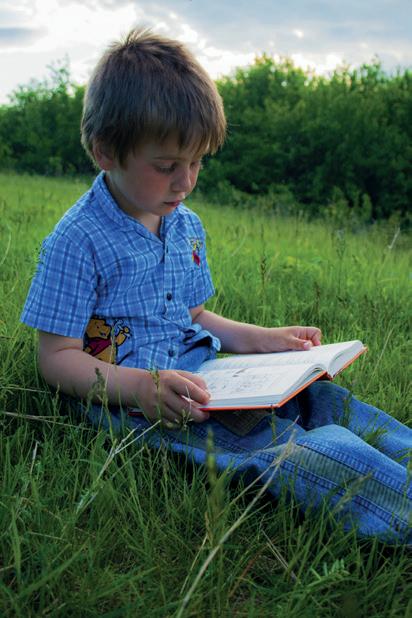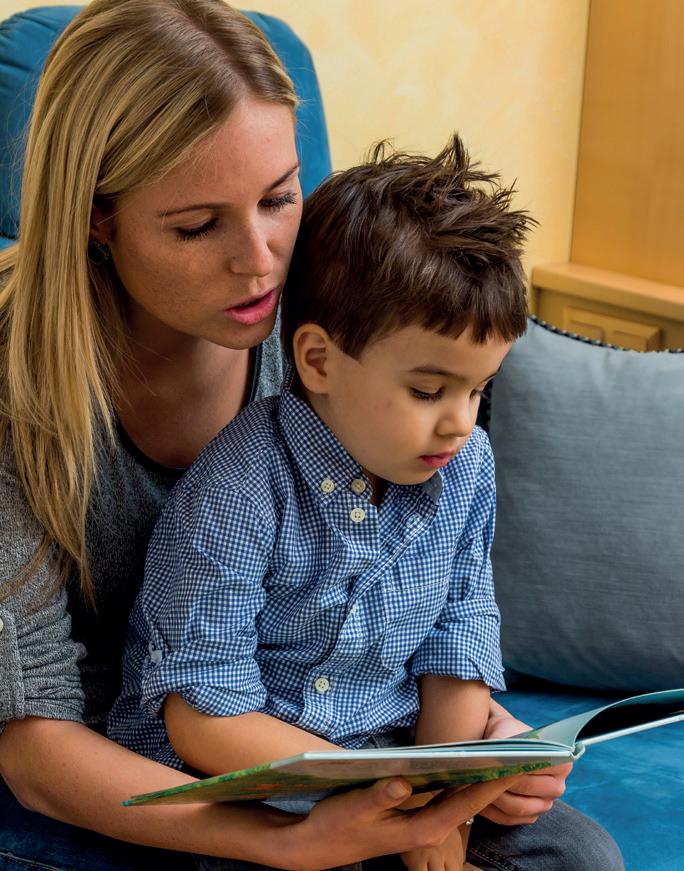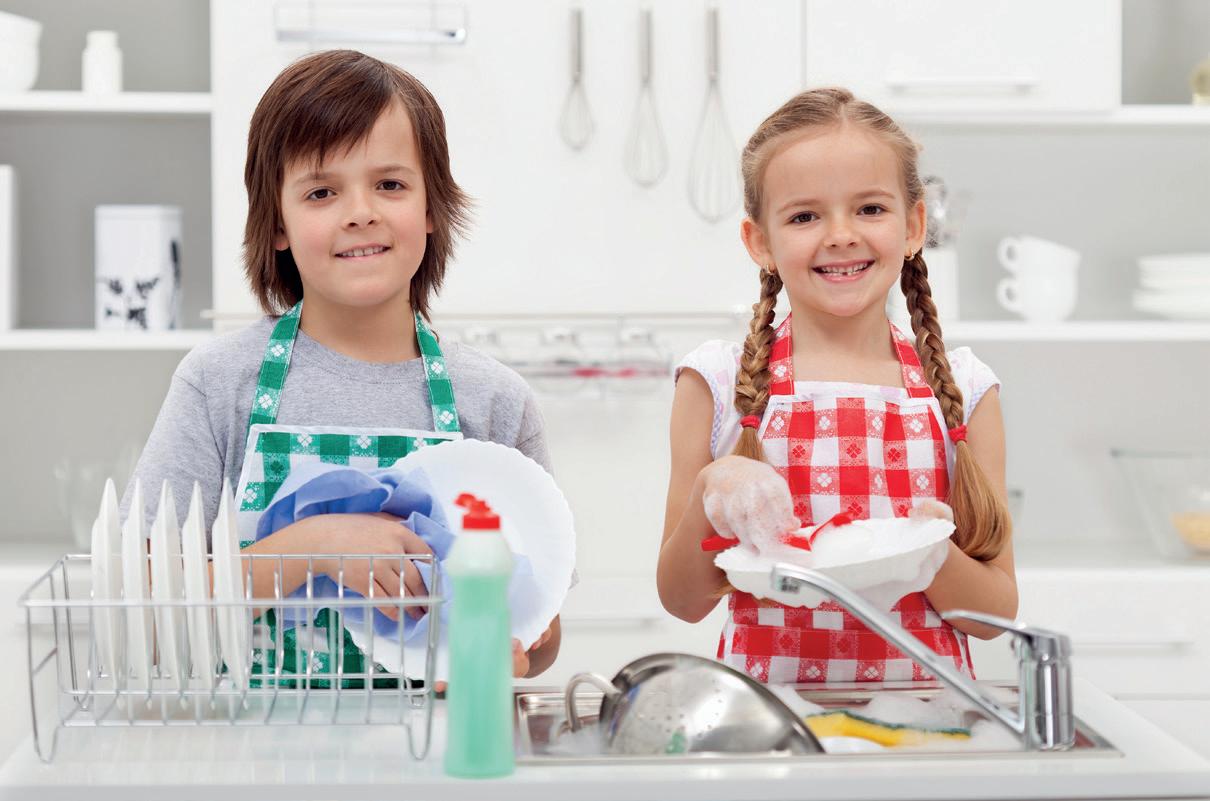
4 minute read
Encouraging reluctant readers
Encouraging Reluctant Readers by Tom Palmer
Children must read. It’s good for them! Unfortunately, that’s the last thing a child who doesn’t like reading wants to hear. They might think reading is boring. They might have low confidence. They might even have an unidentified issue like dyslexia. Being told that reading is good for them just makes them feel worse.
Advertisement
My mum knew I hated reading. The more pressure she applied the more stubborn I was about it. I reacted to the pressure by defining myself as a non-reader and once I’d told myself that, I became even more entrenched. Then my mum changed tack. She did some things which made me want to read and to eventually call myself a reader.
Forget that loving reading is good for children. Make reading relate to something they already love.
Make a list of the things your child is passionate about. Do it now. Write down the five experiences, television shows, sports, interests that enthuse them. These are the things that are probably going to get your child into reading. For me it was football…and then football…
Start with their favourite television show. Television is seen as one of the enemies of reading. But it’s so good now, it’s sometimes hard to tear yourself away. It’s helpful then that a lot of shows have books linked to them. Search for an official book or biography of one of the main characters on the show’s website. Is there spin-off fiction? An annual? If enough people watch a show – say, like Strictly – then there’ll be a book.
Teachers and school librarians often know more about what a child might like to read than a parent. Talk to your child’s teacher or school librarian. They also know what books have worked for other children in the past. They’re experts.

Have a day out. Football. Cinema. Theme park. Zoo. Whatever you do, there will usually be books available. Gift shops at the end of museums or theme parks often have books or guides. Theatres and sports venues have programmes. For me, it was Leeds United match day magazines, but I accept they’re not to everyone’s taste!
Who does your child admire? A dancer? A singer? A sports person? Has that person written a book? There are more and more celebrities writing books. As a non-celebrity author I hate it, but, as a parent of an impressionable child, it’s great for you. Look the celeb’s name up on Amazon and see what’s out there. If you don’t want to buy it, then head to the library.
Role models are not just famous people. Does your child have a coach, teacher, aunt or neighbour that they admire? For me it was my sister’s boyfriend: he gave me books. I read them because they were from him. Get your child’s role model to talk to them about books and recommend titles. A book from someone you look up to is more likely to get read.
You are your child’s number one role model. Let them see you reading what YOU want to read!
Don’t worry if your child doesn’t finish every book. I finish less than half the books I read. Borrow from the library and then your child can experiment without it costing money.
Books are not always best. Does your child have a favourite magazine? There are hundreds of magazines for kids available from supermarkets and high street newsagents. They cost a bit and there are far less words in them, but they’re a great way to get children reading. They’re colourful. They’re silly. They’re exciting.
Get a magazine delivered. The idea of a magazine arriving for your child (and your child alone) can be exciting for them. I had Match magazine delivered when I was a kid. I couldn’t wait for Thursdays as a result.
Tom Palmer won the Ruth Rendell Award 2019 for his outstanding contribution to raising children’s literacy levels in the UK. He is the author of 45 books for children; yet he only became a reader at age 17, thanks to his mum and what she did to engage him with reading. For more infor- mation, visit www.tompalmer.co.uk
New eBooks Encourage Children to Eat Vegetables Parents of fussy eaters can now access new FREE resources courtesy of the ‘See & Eat’ project, an initiative supported by the British Nutrition Foundation, to support parents in persuading their children to eat more vegetables. Resources include 24 new eBooks which can be downloaded from the ‘See & Eat’ website. These have been developed based on past research which has shown that showing hard-copy picture books about vegetables to children helps to familiarise them with new food and ultimately, helps them to eat a wider variety. The ‘See & Eat’ eBooks each tell the farm to fork journey of a different vegetable and can be personalised with pictures, videos and text. To access eBooks, visit www.foodunfolded.com/seeandeat
Sleep Lessons for School Children School children across Britain may be offered sleep lessons to help tackle the problem of insomnia in young people.

According to the British Medical Journal, there is increasing evidence emerging that lack of sleep has a major impact on children’s mental and physical health, as well as learning. A recent study by the BMJ suggests sleep has a greater impact on an adolescent’s mental wellbeing than bullying, physical activity and screen time.
The sleep lessons are aimed at children ages 7 to 16 years and focus on giving children strategies for falling asleep and raising awareness of how sleep needs change in adolescence.
Experts say the increase in sleep problems is down to a combination of higher obesity levels, excessive use of social media before bedtime and a mental health crisis among young people More info: www.pshe-association.org.uk www.thechildrenssleepcharity.org.uk








